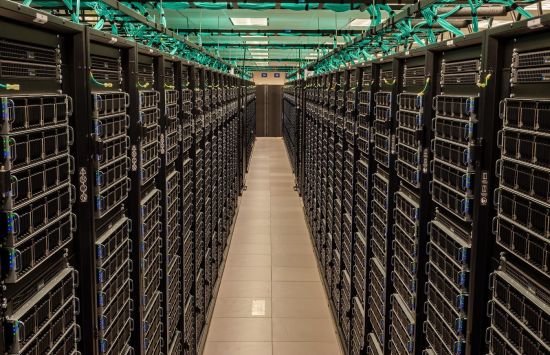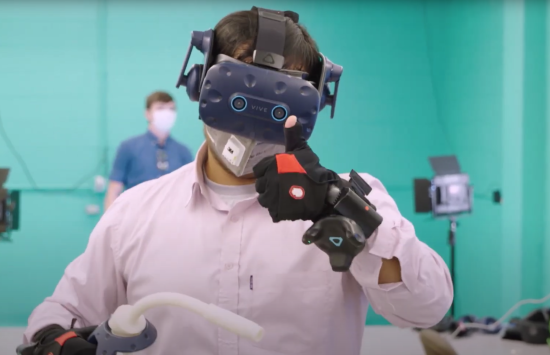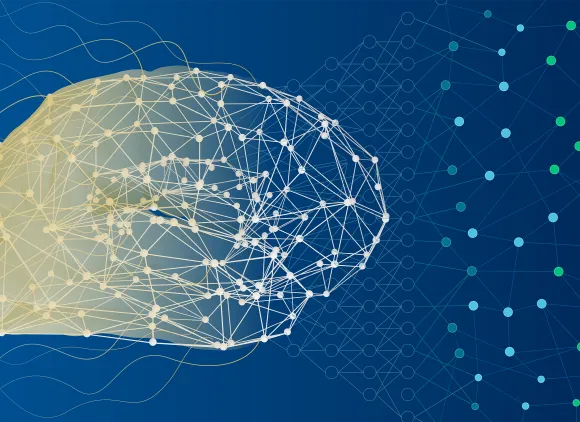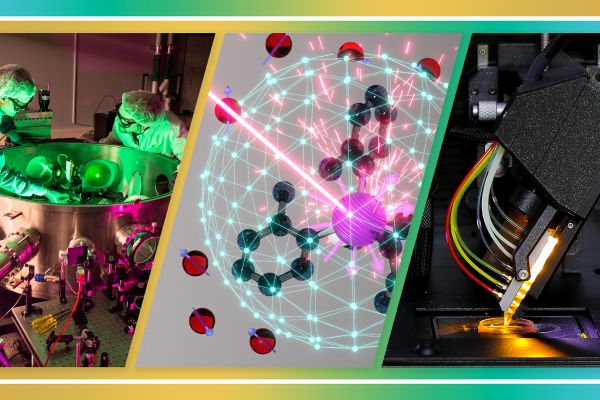The U.S. National Science Foundation has invested in artificial intelligence research since the early 1960s, setting the technical and conceptual foundations driving today's AI innovations.
AI-driven discoveries and technologies are transforming Americans' daily lives and promising practical solutions to global challenges, from food production and supply chains to healthcare and education.
As a major federal funder of AI research, NSF is making investments that will catalyze new discoveries, translate this knowledge into the hands of the American enterprise and build the workforce needed to drive U.S. global leadership and economic competitiveness.
What is the future of AI?
In this eight-minute video, learn about AI and its potential applications.
What we support
With investments of over $700 million each year, NSF is:

Fostering the next generation of breakthroughs
We invest in fundamental AI research, accelerate AI-powered discovery across all fields of science and engineering and deepen the understanding of economic and societal implications of widespread AI adoption.

Translating AI research to impact
We expand pathways to transition AI innovations into practice and power regional innovation and economic development.

Empowering AI innovation through research infrastructure
We provide the research community with access to integrated computational, data and software resources with hands-on support and training.
Learn about the National Artificial Intelligence Research Resource Pilot.

Building a world-class workforce for the AI era
We invest in the creation of educational tools, materials, curricula, scholarships and fellowships to enhance learning and create an AI-ready workforce.

Forging partnerships to accelerate progress
We partner with other federal agencies, industry and nonprofits to leverage expertise; identify use cases; and improve access to data, tools and other resources.
Featured funding
Computer and Information Science and Engineering: Core Programs
Supports foundational and use-inspired research in AI, data science and human-computer interaction — including human language technologies, computer vision, human-AI interaction, and theory of machine learning.
America's Seed Fund (SBIR/STTR)
Supports startups and small businesses to translate research into products and services, including AI systems and AI-based hardware, for the public good.
Cyber-Physical System Foundations and Connected Communities
Supports foundational and community-driven research that integrates computation, physical systems and human interaction to create reliable, resilient cyber-physical systems that enhance quality of life and community well-being.
Foundations for Operating the National Artificial Intelligence Research Resource: the NAIRR Operations Center
Will establish a community-based organization coordinate activities in support of an integrated national infrastructure for AI research and education.
Foundations for Digital Twins as Catalyzers of Biomedical Technological Innovation
Supports interdisciplinary research projects that explore the mathematical and engineering foundations behind the development and use of digital twins in biomedical and healthcare applications.
Advancing Research at the Intersection of Biology and Artificial Intelligence (AI)/Machine Learning (ML)
Encourages proposals that advance biological research through use of Artificial Intelligence/Machine Learning (AI/ML) or through development of AI/ML methods using biological data and systems.
Artificial Intelligence, Formal Methods and Mathematical Reasoning
Supports research at the interface of innovative computational and AI technologies and new strategies/technologies in mathematical reasoning to guide and enhance research in the mathematical sciences, formal methods and AI.
Expanding K-12 Resources for AI Education DCL
Invites supplemental funding requests to current NSF awardees in certain NSF directorates to support the expansion of K-12 resources for AI education.
Expanding AI Career and Skilled Technical Workforce Opportunities in Support of High School Students DCL
Invites supplemental funding requests from current ExLENT and ATE awardees for education-industry collaboration supporting AI-focused career and skill building learning opportunities for high school students.
Integrated Data Systems & Services
Supports national-scale data infrastructure that powers open, data-intensive and AI-driven research and education by funding the development, expansion and planning of integrated systems and services for the scientific community.
Mathematical Foundations of Artificial Intelligence
Supports research collaborations between mathematicians, statisticians, computer scientists, engineers and social behavior scientists to establish innovative and principled design and analysis approaches for AI technology.
Smart Health and Biomedical Research in the Era of Artificial Intelligence
Supports the development of new methods that intuitively and intelligently collect, sense, connect, analyze and interpret data from individuals, devices and systems.
Featured news
Brought to you by NSF
NSF's decades of sustained investments have ensured the continual advancement of AI research. Pioneering work supported by NSF includes:
Reinforcement learning
Which improves the conversational ability of chatbots and trains self-driving cars, among other uses.
Neural networks
Which enable computer understanding of human speech and the analysis of visual scenes.
AI-driven learning
Which has led to the development of virtual teachers (both digital and robotic) that incorporate speech, gesture, gaze and facial expression.
Large language models
Which power generative AI systems like ChatGPT.
Collaborative filtering
Which fuels content recommendation on the world's largest marketplaces and content platforms, from Amazon to Netflix.
Protein Data Bank
Which facilitated the development of AlphaFold2, an AI tool that predicts protein shapes — accelerating medical breakthroughs and leading to a Nobel Prize for its inventors.





